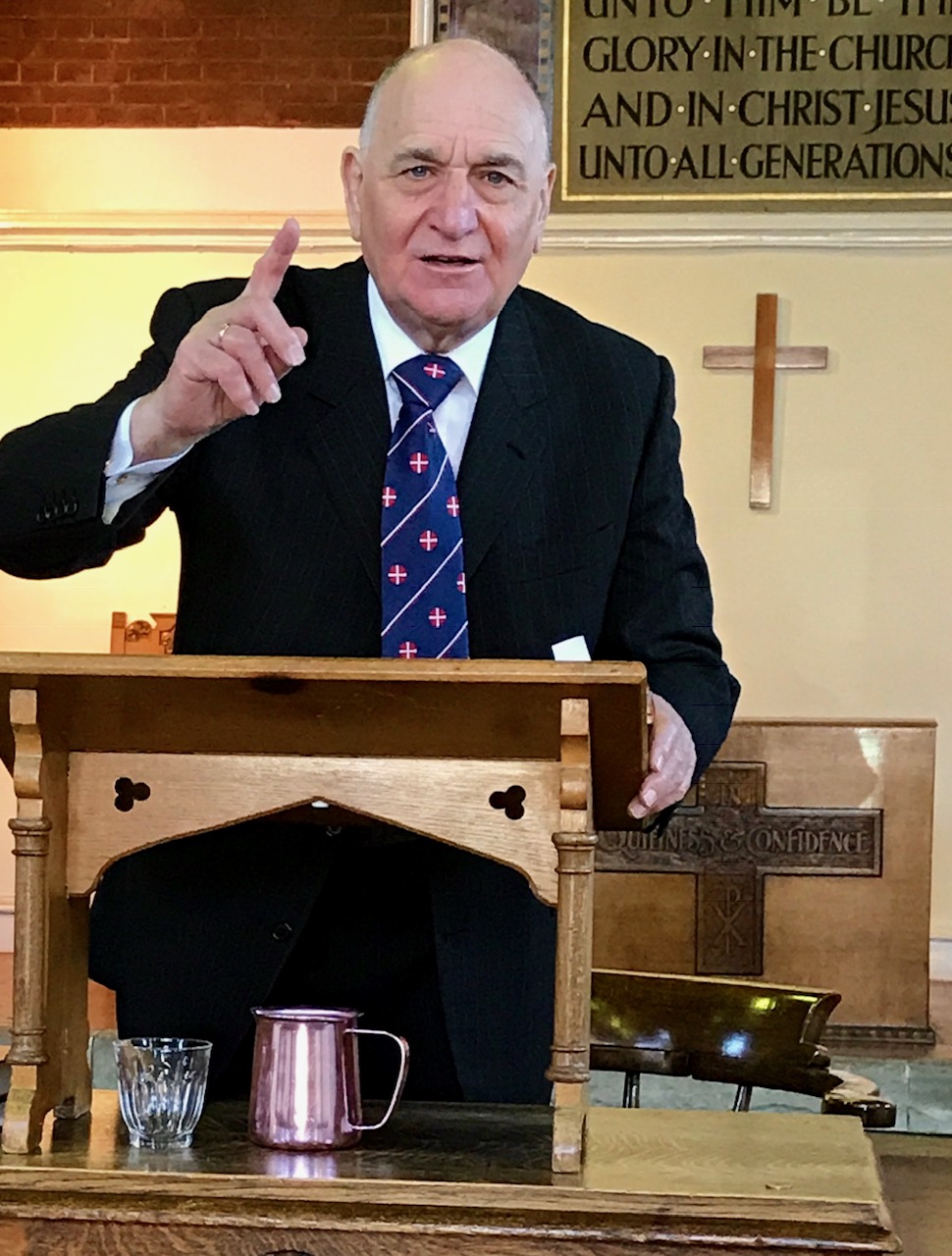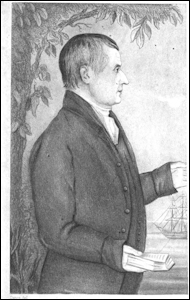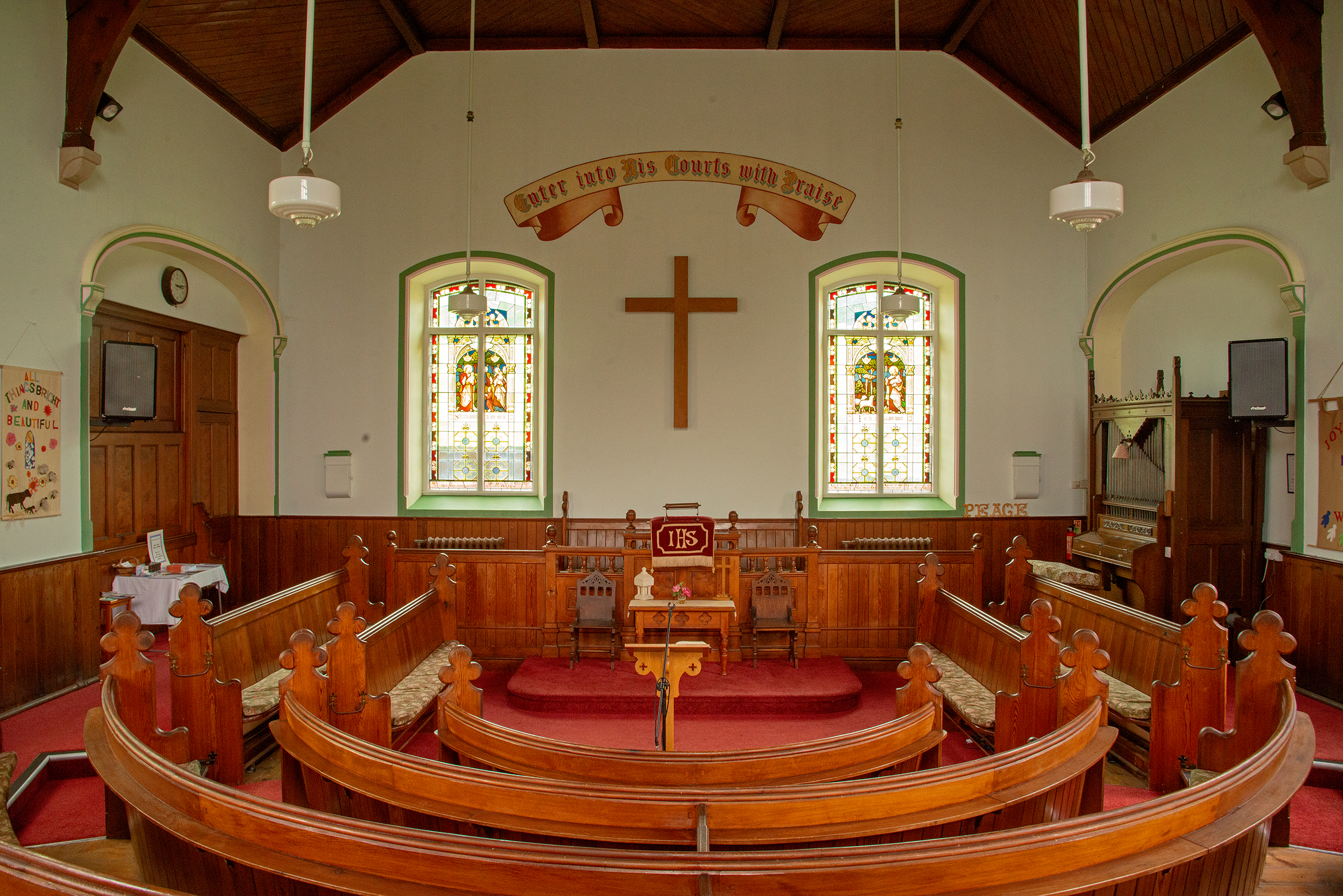|
Methodist Local Preacher
A Methodist local preacher, also known as a licensed preacher, is a layperson who has been accredited by the Methodist Church to lead worship and preach on a frequent basis. With separation from the Church of England by the end of the 18th century, a clear distinction was recognised between itinerant preachers (later, ministers) and the local preachers who assisted them. Local preachers have played an important role in Methodism since the earliest days of the movement, and have also been important in English social history. These preachers continue to serve an indispensable role in the Methodist Church of Great Britain, in which the majority of church services are led by laypeople. In certain Methodist connexions, a person becomes a local preacher after obtaining a license to preach. In many parts of Methodism, such as the Allegheny Wesleyan Methodist Connection, there are thus two different tiers of ministers—licensed preachers and ordained elders. Historical background Lo ... [...More Info...] [...Related Items...] OR: [Wikipedia] [Google] [Baidu] |
Laity
In religious organizations, the laity () consists of all members who are not part of the clergy, usually including any non- ordained members of religious orders, e.g. a nun or a lay brother. In both religious and wider secular usage, a layperson (also layman or laywoman) is a person who is not qualified in a given profession or does not have specific knowledge of a certain subject. The phrase " layman's terms" is used to refer to plain language that is understandable to the everyday person, as opposed to specialised terminology understood only by a professional. Some Christian churches utilise lay preachers, who preach but are not clergy. The Church of Jesus Christ of Latter-day Saints uses the term ''lay priesthood'' to emphasise that its local congregational leaders are unpaid. Terms such as ''lay priest'', ''lay clergy'' and ''lay nun'' were once used in certain Buddhist cultures to indicate ordained persons who continued to live in the wider community instead of ret ... [...More Info...] [...Related Items...] OR: [Wikipedia] [Google] [Baidu] |
Clergy
Clergy are formal leaders within established religions. Their roles and functions vary in different religious traditions, but usually involve presiding over specific rituals and teaching their religion's doctrines and practices. Some of the terms used for individual clergy are clergyman, clergywoman, clergyperson, churchman, and cleric, while clerk in holy orders has a long history but is rarely used. In Christianity, the specific names and roles of the clergy vary by denomination and there is a wide range of formal and informal clergy positions, including deacons, elders, priests, bishops, preachers, pastors, presbyters, ministers, and the pope. In Islam, a religious leader is often known formally or informally as an imam, caliph, qadi, mufti, mullah, muezzin, or ayatollah. In the Jewish tradition, a religious leader is often a rabbi (teacher) or hazzan (cantor). Etymology The word ''cleric'' comes from the ecclesiastical Latin ''Clericus'', for those belonging to t ... [...More Info...] [...Related Items...] OR: [Wikipedia] [Google] [Baidu] |
Wesleyan Methodist Church (Great Britain)
The Wesleyan Methodist Church (also named the Wesleyan Methodist Connexion) was the majority Methodist movement in England following its split from the Church of England after the death of John Wesley and the appearance of parallel Methodist movements. The word ''Wesleyan'' in the title differentiated it from the Welsh Calvinistic Methodists (who were a majority of the Methodists in Wales) and from the Primitive Methodist movement, which separated from the Wesleyans in 1807. The Wesleyan Methodist Church followed the Wesleys in holding to an Arminian theology, in contrast to the Calvinism held by George Whitefield, by Selina Hastings (founder of the Countess of Huntingdon's Connexion), and by Howell Harris and Daniel Rowland, the pioneers of Welsh Methodism. Its Conference was also the legal successor to John Wesley as holder of the property of the original Methodist societies.Davies, R. E. (1985) ''Methodism'', 2nd ed. Peterborough: Epworth Press. ; p. 109. History Althoug ... [...More Info...] [...Related Items...] OR: [Wikipedia] [Google] [Baidu] |
Bible Christian
The Bible Christian Church was a Methodist denomination founded by William O’Bryan, a Wesleyan Methodist local preacher, on 18 October 1815 in North Cornwall. The first society, consisting of just 22 members, met at Lake Farm in Shebbear, Devon. Members of the Church were sometimes known as Bryanites, after their founder. Early history Primarily concentrated in Cornwall and Devon, the church sent missionaries all over England. By 1820, missions had been established in the Channel Islands and in Kent. They were also strong in the Isle of Wight amongst farm labourers, largely due to the inspirational teachings of Mary Toms of Tintagel, Cornwall. The vicar of Brighstone, Samuel Wilberforce, urged that their influence be countered by having their adherents sacked from their jobs and turned out from their cottages, resulting in their sometimes meeting in a chalk pit. There are several chapels in rural areas of the Island which have the title "Bible Christian Chapel" over the ... [...More Info...] [...Related Items...] OR: [Wikipedia] [Google] [Baidu] |
Primitive Methodism In The United Kingdom
Primitive Methodism was a major movement in English and Welsh Methodism from about 1810 until the Methodist Union in 1932.W. E. Farndale, ''The Secret of Mow Cop'', Epworth Press, London, 1950. It emerged from a revival at Mow Cop in Staffordshire. ''Primitive'' meant "simple" or "relating to an original stage"; the Primitive Methodists saw themselves as practising a purer form of Christianity, closer to the earliest Methodists. Although the denomination did not bear the name "Wesleyan" (unlike the Wesleyan Methodist Church, from which they separated), Primitive Methodism was Wesleyan in theology, in contrast to the Calvinistic Methodists. Features Primitive Methodists were marked by the relatively plain design of their chapels and their low church worship, compared with the Wesleyan Methodist Church, from which they had split. Their social base was among the poorer members of society, who appreciated its content (damnation, salvation, sinners and saints) and its style (direc ... [...More Info...] [...Related Items...] OR: [Wikipedia] [Google] [Baidu] |
Adam Bede
''Adam Bede'' was the first novel by Mary Ann Evans ( George Eliot), and was published in 1859. It was published pseudonymously, even though Evans was a well-published and highly respected scholar of her time. The novel has remained in print ever since and is regularly used in university studies of 19th-century English literature. She described the novel as, “A country story full of the breath of cows and scent of hay”. Plot summary According to '' The Oxford Companion to English Literature'' (1967), : "the plot is founded on a story told to George Eliot by her aunt Elizabeth Evans, a Methodist preacher, and the original of Dinah Morris of the novel, of a confession of child-murder, made to her by a girl in prison." The novel follows the lives of four characters in the fictional community of Hayslope—a rural, pastoral, and close-knit community—in 1799. The novel revolves around a love "rectangle" among the beautiful but self-absorbed Hetty Sorrel; Captain Arthur Don ... [...More Info...] [...Related Items...] OR: [Wikipedia] [Google] [Baidu] |
George Eliot
Mary Ann Evans (22 November 1819 – 22 December 1880; alternatively Mary Anne or Marian), known by her pen name George Eliot, was an English novelist, poet, journalist, translator, and one of the leading writers of the Victorian era. She wrote seven novels: '' Adam Bede'' (1859), '' The Mill on the Floss'' (1860), '' Silas Marner'' (1861), ''Romola'' (1862–63), '' Felix Holt, the Radical'' (1866), '' Middlemarch'' (1871–72) and '' Daniel Deronda'' (1876). Like Charles Dickens and Thomas Hardy, she emerged from provincial England; most of her works are set there. Her works are known for their realism, psychological insight, sense of place and detailed depiction of the countryside. ''Middlemarch'' was described by the novelist Virginia Woolf as "one of the few English novels written for grown-up people"Woolf, Virginia. "George Eliot." ''The Common Reader''. New York: Harcourt, Brace, and World, 1925. pp. 166–76. and by Martin Amis and Julian Barnes as the greatest novel ... [...More Info...] [...Related Items...] OR: [Wikipedia] [Google] [Baidu] |
Sacrament
A sacrament is a Christian rite that is recognized as being particularly important and significant. There are various views on the existence and meaning of such rites. Many Christians consider the sacraments to be a visible symbol of the reality of God, as well as a channel for God's grace. Many denominations, including the Catholic, Lutheran, Anglican, Methodist, and Reformed, hold to the definition of sacrament formulated by Augustine of Hippo: an outward sign of an inward grace, that has been instituted by Jesus Christ. Sacraments signify God's grace in a way that is outwardly observable to the participant. The Catholic Church, Hussite Church and the Old Catholic Church recognise seven sacraments: Baptism, Penance (Reconciliation or Confession), Eucharist (or Holy Communion), Confirmation, Marriage (Matrimony), Holy Orders, and Anointing of the Sick (Extreme Unction). The Eastern Churches, such as the Eastern Orthodox Church and Oriental Orthodox Church as well as ... [...More Info...] [...Related Items...] OR: [Wikipedia] [Google] [Baidu] |
Methodist Circuit
The organisation of the Methodist Church of Great Britain is based on the principle of connexionalism. This means that British Methodism, from its inception under John Wesley (1703–1791), has always laid strong emphasis on mutual support, in terms of ministry, mission and finance, of one local congregation for another. No singular church community has ever been seen in isolation either from its immediately neighbouring church communities or from the centralised national organisation. Wesley himself journeyed around the country, preaching and establishing local worshipping communities, called "societies", often under lay leadership. Soon these local communities of worshipping Christians formalised their relationships with neighbouring Methodist communities to create "circuits", and the circuits and societies contained within them, were from the very beginning 'connected' (hence the distinctive Methodist concept of the "Connexion") to the centre and Methodism's governing body, ... [...More Info...] [...Related Items...] OR: [Wikipedia] [Google] [Baidu] |
American War Of Independence
The American Revolutionary War (April 19, 1775 – September 3, 1783), also known as the Revolutionary War or American War of Independence, was a major war of the American Revolution. Widely considered as the war that secured the independence of the United States, fighting began on April 19, 1775, followed by the Lee Resolution on July 2, 1776, and the Declaration of Independence on July 4, 1776. The American Patriots were supported by the Kingdom of France and, to a lesser extent, the Dutch Republic and the Spanish Empire, in a conflict taking place in North America, the Caribbean, and the Atlantic Ocean. Established by royal charter in the 17th and 18th centuries, the American colonies were largely autonomous in domestic affairs and commercially prosperous, trading with Britain and its Caribbean colonies, as well as other European powers via their Caribbean entrepôts. After British victory over the French in the Seven Years' War in 1763, tensions between the motherland and her ... [...More Info...] [...Related Items...] OR: [Wikipedia] [Google] [Baidu] |
United States
The United States of America (U.S.A. or USA), commonly known as the United States (U.S. or US) or America, is a country primarily located in North America. It consists of 50 states, a federal district, five major unincorporated territories, nine Minor Outlying Islands, and 326 Indian reservations. The United States is also in free association with three Pacific Island sovereign states: the Federated States of Micronesia, the Marshall Islands, and the Republic of Palau. It is the world's third-largest country by both land and total area. It shares land borders with Canada to its north and with Mexico to its south and has maritime borders with the Bahamas, Cuba, Russia, and other nations. With a population of over 333 million, it is the most populous country in the Americas and the third most populous in the world. The national capital of the United States is Washington, D.C. and its most populous city and principal financial center is New York City. Paleo-Americ ... [...More Info...] [...Related Items...] OR: [Wikipedia] [Google] [Baidu] |
Religious Minister
In Christianity, a minister is a person authorised by a church or other religious organization to perform functions such as teaching of beliefs; leading services such as weddings, baptisms or funerals; or otherwise providing spiritual guidance to the community. The term is taken from Latin ''minister'' ("servant", "attendant"). In some church traditions the term is usually used for people who have ordained, but in other traditions it can also be used for non-ordained people who have a pastoral or liturgical ministry. In Catholic, Orthodox ( Eastern and Oriental), Anglican and Lutheran churches, the concept of a priesthood is emphasized. In other denominations such as Baptist, Methodist and Calvinist churches ( Congregationalist and Presbyterian), the term "minister" usually refers to a member of the ordained clergy who leads a congregation or participates in a role in a parachurch ministry; such a person may serve as an elder (presbyter), pastor, preacher, bishop, or chaplain. ... [...More Info...] [...Related Items...] OR: [Wikipedia] [Google] [Baidu] |

.jpg)



.jpg)




